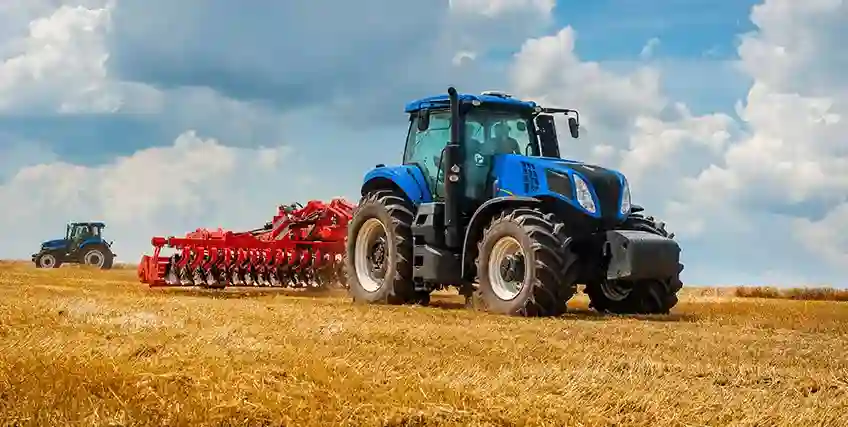How to Improve Your Credit Score Before Applying for a Farm Loan
September 10, 2025 | Last Updated on: September 10, 2025

Applying for a farm loan can be a big step toward expanding your operation, buying new equipment, or covering seasonal expenses. But before a lender approves your application, one of the first things they'll look at is your credit score. A strong credit profile not only improves your chances of approval, but it can also help you secure better interest rates and repayment terms—saving you money in the long run. If your score isn't where you'd like it to be, don't worry. With the right steps, you can start building healthier credit and position yourself for loan success.
In this guide, we'll solve this problem by showing how to improve your credit score, step by step, so you can secure the right farmer loan amount and loan terms that your farm business deserves.
Problem 1: Poor Credit Score Limits Farm Loan Approval and Terms
The Problem:
- Farmers often have different working capital needs or want to buy farm equipment, but low credit scores reduce farm loan eligibility.
- Loan offers at USDA service centers, commercial lenders, and farm credit institutions use credit scores to decide approval for farm financing options.
- Also, low credit scores can lead to higher interest rates, smaller loan amounts, and less favorable repayment terms.
Solution:
- Check your credit report and correct errors.
- Pay down your existing operating loans before applying for any new types of loans.
- Make sure to pay on time consistently.
- Also, avoid opening multiple new loan accounts or down payment loans.
Problem 2: New Farmers May Struggle to Build Credit History
The Problem:
- Applicants for farm loans for new farmers and youth loans often lack a long credit history.
- Without previous loans, banks and USDA Farm Service Agency offices find it harder to assess repayment ability.
Solution:
- Beginning farmers can start with microloans or farm equipment financing options.
- Become an authorized user on a family member's farm business account.
- Maintain old accounts to strengthen credit history length.
- Additionally, apply for farm loans for women programs or other USDA farm loan programs that are designed for new farmers.
Problem 3: Taking Out Too Much Debt
The Problem:
- Taking out multiple operating loans at once increases credit utilization.
- High loan funds usage can make loan officers hesitant to approve additional agriculture loans.
Solution:
- Make sure you pay down your older debts first before applying for a new farm loan.
- Maintain low credit utilization by only borrowing what is needed for operating expenses.
- You can also refinance existing farm loans to reduce interest rates and consolidate repayment.
Problem 4: Not Working with the Right Lender
The Problem:
- Also, choosing the wrong lender can mean missing out on loan programs, loan funds, and working capital opportunities.
Solution:
- Always review your credit report annually.
- Communicate with loan officers at local USDA offices, commercial lenders, or farm credit institutions.
- Use crop insurance and other USDA Farm Service Agency programs to strengthen your farm loan application.
Problem 5: Lack of Knowledge About USDA and Commercial Loan Programs
The Problem:
- This leads to missed opportunities for family farms, beginning farmers, and women in agriculture.
Solution:
- Explore USDA Farm Service Agency loan programs online or visit the local office.
- Understand eligibility requirements, loan terms, and maximum loan amount before applying for farm loans.
- Use farm equipment financing or working capital loan programs strategically.
- Also, consider refinancing to get better interest rates and manageable repayment schedules.
Common Credit Mistakes Farmers Should Avoid
Now that you have understood the problems that farmers may often face when taking out a farm loan due to low credit scores, here are some of the common mistakes that you can avoid ensuring your credit score remains strong.
- Missing Payments: Delayed repayment on loan funds or direct farm ownership loans often lowers your credit score.
- High Credit Utilization: Using most of your available loan amount signals financial stress. Therefore, make sure to keep your credit utilization below 30%.
- Ignoring Credit Reports: Not checking your credit reports may let errors affect loan eligibility requirements.
- Closing Old Accounts: Closing old accounts like family farm loans reduces your credit history length, lowering your credit score.
- Applying for Too Many Loans: Repeated loan applications for different types of loans can negatively impact your credit score.
How Long Does It Take to Improve a Credit Score?
For improving your credit score, the timeline varies depending on the actions you take. Like:
- Minor Changes: Paying down loan funds back on time or correcting credit report errors can improve your credit score in a few months.
- Major Adjustments: Addressing overdue debts, refinancing loans, or managing multiple USDA farm loan programs may take six months or longer.
Tips to Maintain a Healthy Credit Score After Getting a Farm Loan
If you get approved for a farm loan, here are some important tips to maintain a healthy credit score:
- Timely Payments: Continue consistent repayment of loan funds, operating loans, and direct farm ownership loans.
- Monitor Credit: Check reports regularly to ensure errors don't affect eligibility for future agriculture loans.
- Manage Debt Responsibly: Avoid overusing working capital or taking excessive farm equipment financing.
- Communicate With Lenders: Stay in touch with loan officers at local offices, commercial lenders, or the USDA service center if financial adjustments are needed.
- Use Crop Insurance and Risk Management: Crop insurance and other USDA programs help stabilize your farm's financial position and preserve your creditworthiness.
- Refinance When Needed: Refinancing farm loans or operating loans can reduce interest rates and improve repayment schedules.
Alternative Farm Loan Options if Your Credit Score Is Low
If your credit score isn't ideal, here are some alternative farm loan options that can help:
- FSA Direct Loans: Available from the USDA Farm Service Agency, suitable for beginning farmers or family farms needing working capital or farm equipment financing.
- Guaranteed Loans: Offered through the farm loan program to protect lenders while providing access for borrowers with lower credit scores.
- Microloans: Provide smaller loan amounts for farm business operations and operating expenses.
- Secured Loans: Offering collateral such as real estate, farm equipment, or loan funds as security can compensate for lower scores.
- Farm Loans for New Farmers: Programs through USDA and local offices provide eligibility requirements and loan terms suited for youth loans or beginning farmers.
The Bottom Line
Farmers can turn the challenge of low credit score into an opportunity. By reviewing reports, paying debts, using farm loan programs, and working with knowledgeable lenders, you can secure loan funds with favorable loan terms, a lower interest rate, and the maximum loan amount for your farm's growth.
Also, minority owned farmers should take a sigh as the United States Department of Agriculture will begin making loan forgiveness payments in June to thousands of minority farmers, according to the New York Times.
Check your credit, visit your local USDA service center, explore farm loans for new farmers, or microloans. Taking action ensures your family farm thrives, your farming operation expands, and your agribusiness prospers.
FAQs About Improving Credit Scores for Farm Loans
Who is eligible for a USDA farm loan?
Eligibility depends on your role as a farmer or rancher, your credit history, and the type of loan you are applying for. Beginning farmers, family farms, and small-scale agribusinesses can also qualify. USDA Farm Service Agency (FSA) programs have specific requirements regarding farm size, income, and ability to repay the loan. Hence, local USDA offices can guide you through eligibility requirements.
What credit score is needed for an agricultural loan?
While requirements vary, most USDA farm loans prefer a credit score of 680 or higher. For beginning farmers or microloan applicants, slightly lower scores may still qualify, especially if you offer collateral or participate in FSA loan programs. As a result, maintaining a good credit history improves your chances of approval and better loan terms.
Is it hard to get a USDA farm loan?
It depends on your credit score, loan application, and how well your business plan demonstrates repayment ability. FSA direct loans and microloans are designed to help beginning farmers and those with less credit history. Moreover, working with loan officers and ensuring eligibility requirements are met can simplify the process.
How can I improve my chances of loan approval?
Focus on building a strong credit score, reducing debt, and maintaining a clear credit history. A detailed business plan, proper documentation of farm income, and crop insurance coverage strengthen your application. Also, choosing the right loan program, whether direct farm ownership loans or operating loans, also increases approval chances.
What types of farm loans are available for new farmers?
New farmers can access FSA direct loans and microloans.These loans cover farm equipment, operating expenses, working capital, and sometimes farm real estate. Additionally, other loan programs may include guaranteed loans through commercial lenders or farm credit institutions.
Frequent searches leading to this page
Related Articles
Term Loans are made by Itria Ventures LLC or Cross River Bank, Member FDIC. This is not a deposit product. California residents: Itria Ventures LLC is licensed by the Department of Financial Protection and Innovation. Loans are made or arranged pursuant to California Financing Law License # 60DBO-35839




